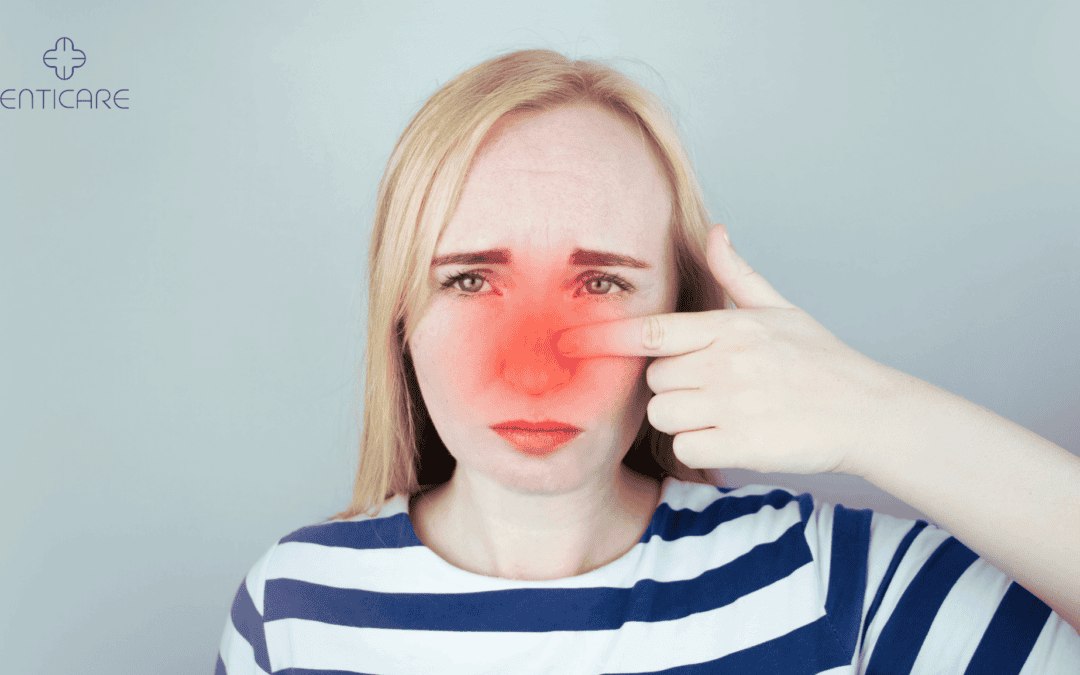Sinusitis affects millions worldwide and causes discomfort, pain, and pressure. Understanding its symptoms and available treatments can help you find relief. Let’s explore sinusitis, covering its causes, symptoms, and treatment options that might suit you.
Understanding Sinusitis: What Causes It?
Sinusitis, or a sinus infection, occurs when the sinuses become inflamed, usually due to disease or blockage. Acute sinusitis is a common condition characterized by inflammation and swelling of the sinuses. Recognizing what triggers sinusitis can help you prevent future flare-ups. Acute sinusitis is often triggered by a viral infection like the common cold, but it can also develop into a bacterial infection or a fungal infection. Sinusitis falls under the broader category of infectious diseases, which includes viral, bacterial, and fungal infections. It can be resolved within a week to 10 days.
Viral and Bacterial Infections
Most sinus infections start from a cold virus. However, a bacterial infection can complicate sinusitis when mucus becomes trapped in the sinuses, creating an environment for bacteria to grow. Acute sinusitis symptoms, such as nasal congestion, facial pain, and headaches, are often caused by a viral infection like the common cold.
Allergic Reactions
Allergies to dust, pollen, or pet dander can inflame the sinuses and lead to chronic sinusitis. Allergies cause swelling in the nasal passages, obstructing drainage and increasing the likelihood of infections.
Structural Issues in the Nasal Cavity, Including Deviated Nasal Septum
A deviated septum or nasal polyps can block nasal passages, leading to mucus buildup and chronic sinusitis. Addressing structural issues often requires medical or surgical intervention.
Common Symptoms of Sinusitis

Sinusitis symptoms can vary depending on whether the infection is acute or chronic. Sinus pain is a common acute and chronic sinusitis symptom, often felt around the nose, cheeks, and forehead. Recognizing these symptoms can help you take the proper steps for relief.
Nasal Congestion and Discharge
A stuffy or blocked nose, along with thick nasal discharge, is a common symptom of sinusitis. Mucus may appear green or yellow, indicating infection.
Facial Pain and Pressure
Sinus infections often cause pressure in the face, especially around the nose, cheeks, and forehead. This can lead to headaches, which worsen when bending over or lying down.
Cough and Sore Throat
Postnasal drip, where mucus runs down the back of the throat, causes irritation and coughing. This symptom often worsens at night, interrupting sleep.
Diagnosing Sinusitis: When to See a Specialist
An accurate sinus infection diagnosed can help you receive the proper treatment. A diagnosis of a sinus infection often involves clinical examinations and diagnostic tests such as CT scans and mucus cultures. While sinusitis usually resolves independently, it’s essential to consult a specialist when symptoms persist. If you experience specific severe symptoms, you should contact a health care provider.
Physical Examination and Medical History
Doctors examine your nose and throat to identify signs of infection. Reviewing your medical history helps pinpoint potential triggers, such as allergies or recurring sinus infections.
Imaging Tests
For chronic sinusitis or severe cases, imaging tests like CT scans provide a detailed view of the sinus cavities. Imaging can reveal blockages, swelling, or structural issues, helping the doctor create a targeted treatment plan.
Allergy Testing
Allergy testing may identify triggers causing sinusitis. This information helps create a preventive plan, especially for individuals with chronic sinus issues related to allergies.
Treatment Options for Sinusitis: Finding Relief

Treating sinusitis often involves a combination of medications, home remedies, and, in some cases, surgical intervention. If symptoms persist or worsen, it is important to consult a healthcare provider for a professional evaluation and appropriate treatment. Sinus infection sinusitis is an inflammation or swelling of the tissue lining the sinuses, which can be caused by various factors, including viral infections, bacteria, or fungi. Infectious diseases such as these can lead to sinusitis, requiring different treatment approaches based on the underlying cause. Suppose a sinus infection doesn’t improve with standard antibiotics. In that case, mucus cultures may be used to identify the type of pathogen, highlighting the need for antifungal treatment if a fungal sinus infection is detected. Here are some effective treatments.
Medications and Antibiotics
Over-the-counter medications like decongestants and antihistamines relieve nasal congestion and inflammation. Doctors may prescribe antibiotics to clear bacterial sinusitis.
Saline Nasal Irrigation
Rinsing your nasal passages with saline helps clear out mucus and allergens and significantly relieves sinusitis symptoms. Many people use a neti pot or saline spray to clear their sinuses.
Surgery for Structural Issues and Chronic Sinusitis
When structural issues such as a deviated septum or nasal polyps, or chronic sinusitis don’t respond to other treatments, surgery may be an option. Procedures like septoplasty or balloon sinuplasty help open blocked passages and improve drainage.
Preventing Sinusitis: Lifestyle and Home Care
Preventing sinusitis involves reducing your exposure to triggers and maintaining healthy habits. Here’s how you can reduce your risk of sinus infections.
Stay Hydrated and Maintain Humidity
Drinking water and using a humidifier keeps your nasal passages moist, making it easier for mucus to drain. This helps reduce sinus infections, especially in dry climates.
Manage Allergies
For those with allergy-related sinusitis, allergy management is essential. Avoiding triggers, using antihistamines, and seeking allergy treatment can reduce inflammation in the nasal passages.
Practice Good Hygiene
Washing your hands frequently and avoiding close contact with sick individuals helps prevent the spread of viruses that can lead to sinus infections.
Find Sinusitis Relief with Professional Care
Sinusitis can disrupt your daily life, but effective treatments are available. When sinus symptoms persist, or if you experience recurrent infections, it may be time to consult a health care provider. Please schedule an appointment with our team at Enticare to find relief tailored to your needs.

